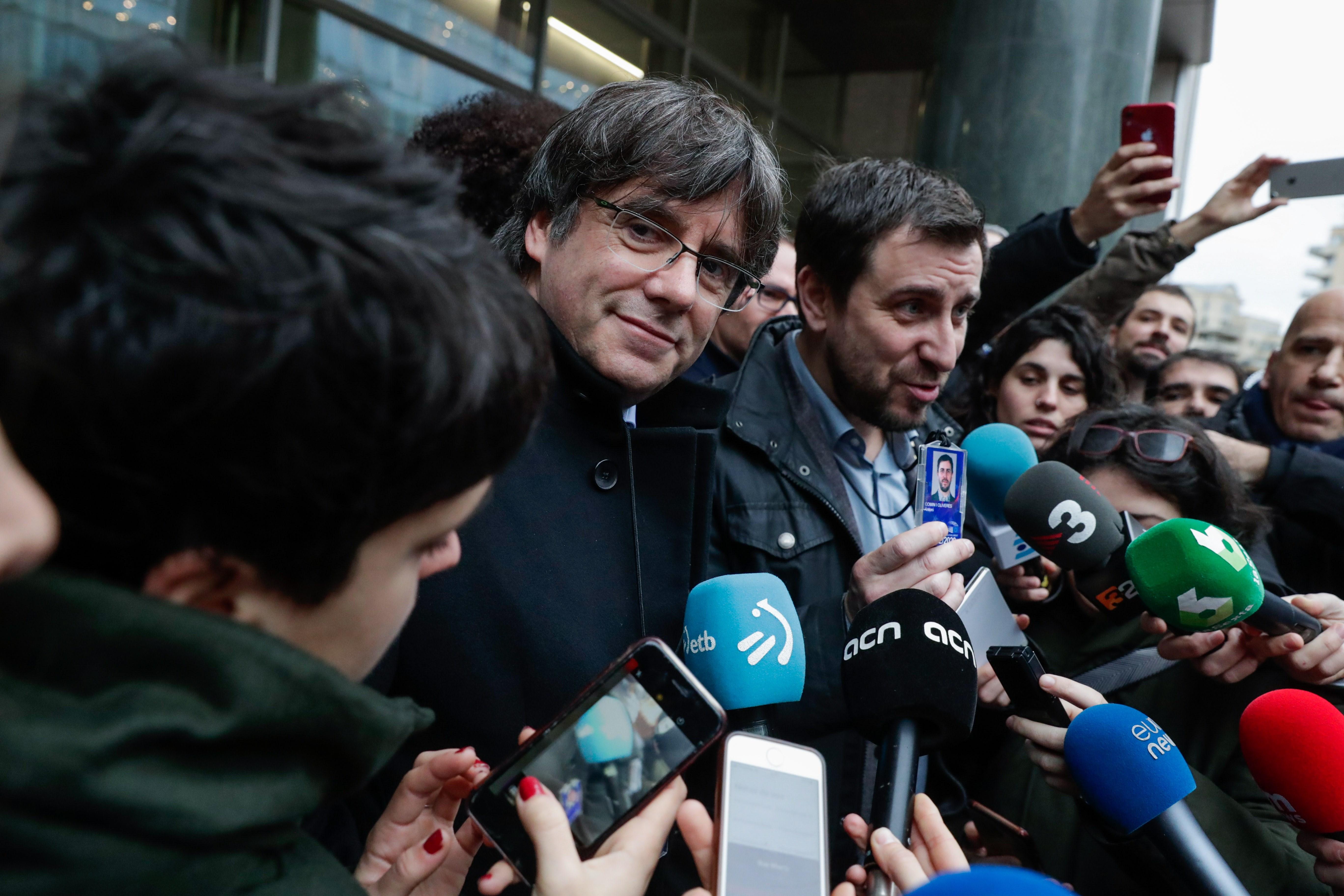Spanish public prosecutors are not clear if the veto which the country's Central Electoral Commission (JEC) imposed on Carles Puigdemont last June when it left him off the list of the country's elected MEPs was correct. In a submission to the administrative law branch of the Spanish Supreme Court, dated last Monday, the prosecutors expressed their doubts about the matter and indicated that the former Catalan president and Toni Comín were justified in filing an appeal against the commission decision.
In a text which reflects the disorientation generated in Spanish legal circles over the last week, the prosecutors also admit that the ruling by the European Court of Justice (ECJ) on Oriol Junqueras' immunity as an MEP represents a "qualitative leap" in relation to the approach to the issue so far. For that reason, they ask the Spanish Supreme Court to suspend the resolution of Puigdemont and Comín's appeal until the ECJ resolves questions it has pending on the same issue.
Apart from this option, they also propose another alternative: to present a preliminary question directly to the ECJ to "clarify whether the requirement to swear obedience to the Spanish Constitution (...) is compatible with European Union law - and if that is the case, under what conditions, or with what requirements and effects."
Rejected for not swearing compliance in person
In their appeal, Puigdemont and Comín accused the electoral commission of violating fundamental rights, through its decision to prevent them from taking their seats as Members of the European Parliament. In particular, they opposed the commission decision of June 20th, which rejected the possibility that Puigdemont and Comín could swear their obedience to the constitution without being physically present.
The exiled Catalan politicians also appealed against the electoral commission's decision which declared their two seats, together with that of Junqueras, to be vacant, and suspended the corresponding prerogatives, in addition to notifying the European Parliament that none of the three had acquired the status of MEP.
Requirement or impediment?
The prosecutors argue that, given the ruling on Junqueras, the swearing of allegiance to the Spanish Constitution could be considered as a "formality that affects the full acquisition of the MEP position", and that it should be clarified whether this requirement is considered within "the framework of jurisdiction of the Spanish state "or if, on the contrary, "it could transpire that it is contrary to the law of the EU, due to its incompatibility with the system of universal and direct suffrage".
The Spanish prosecutors claim in their arguments that "nothing would preclude the interpretation" that in the case of Spanish MEPs-elect they could have immunity from the day of the proclamation of the results, which would protect them in order to be able to swear by the constitution "without impediments". The act of allegiance would thus be a "requirement under domestic law against which national authorities [could not] put up any obstacle."
That is, the Spanish state would have to permit every MEP-elect to swear by the constitution, allowing Junqueras to leave prison to thus accept his post and comply with the requirements of Spanish law. In this regard, the prosecution wonders "to what extent immunity could be compatible with the risk of being arrested and sent to prison".
This is why the public prosecutors want European justice to express its views first. If EU judges were to confirm that abiding by the constitution is not a requirement but an "impediment" to accessing the post, the Spanish prosecutors would accept that "mere proclamation of the condition of being elected" would grant Puigdemont "the right, without the need to comply with any subsequent formality, to take possession of his seat in the European Parliament."

